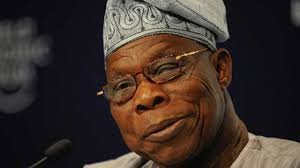The house of representatives committee on finance has summoned Sule Abdulaziz, managing director, Transmission Company of Nigeria (TCN), over the Azura power plant agreement.
The committee, chaired by James Faleke, issued the summon on Monday during an investigative hearing into proposed sales of the National Integrated Power Plant (NIPP) by the Bureau of Public Procurement (BPP).
Victor Adewumi, executive director, Transmission Service Provider (TSP), and Edmond Eje, director, market operations, TCN, appeared before the committee.
The panel, however, said it was not satisfied with the account of both officials on the issue.
The committee also resolved to hire the services of a consultant to dissect documents presented by the officials of TCN.
Last week, the committee queried the “take or pay deal” reached with investors on the power plant when the Nigeria Bulk Electricity Trading Company (NBET) appeared before it.
In his presentation, Adewumi said Azura, which is located in Edo state, was structured to produce 450 megawatts of electricity.
Adewumi added that Azura had historically produced “accumulatively 1,755.9 megawatts”.
“The 450 megawatts are expected to be generated at any time. If Azura is on, it should give you 460 megawatts,” he said.
But reacting, Faleke argued that the epileptic power supply was a violation of the agreement signed.
Faleke pointed out that what was contained in the document provided was 1.7 kilowatts as against the 2 kilowatts presented by the team.
“Nigerians are willing to set up industries. But there is no power. But yet they have paid huge sums of money. This is just an issue; not witch-hunting. It is not about TCN but Nigeria,” the chairman said.
“So, all the questions I have for TCN, I will have to reserve for your MD. There are questions that this committee will like to ask when the MD is seated.
“Whatever position we find ourselves, we are just opportune among 200 million Nigerians.”
Speaking on optimisation of the plant, Eje said Azura is unable to meet the target of generating 450MW as provided in the deal, adding that there is a justification for not doing that.
Responding, Faleke said other power plants like Egbin with generating capacity of 1,320MW and Transcorp power plant with generating capacity of 920MW, do not have a call options agreement (PCOA).
“Egbin power station is the largest with 1,320 megawatts. It is private. We did not sign take-or-pay with them. This is where I am going. If we have Egbin power station that is generating the highest into the national grid – 1,320, and we also have Transcorp with about 650 megawatts and we did not sign take-or-pay with Transcorp, and I am sure we have others, what we are trying to bring out is that what is so special about Azura? Not only that it is special, but just two or three people sat down and committed Nigerians to it. We will get there,” he said.
“This document you gave us, there is no month that they have met 450MW.
“If I understand your earlier statement, can you say that they have not produced up to 450 that was signed and they have justification for not producing up to that? In that case, would you say as a Nigerian that they have violated the agreement we signed?”
Consequently, Abdulaziz was asked to appear on Tuesday to answer questions on the pull call options agreement (PCOA).
Under the PCOA deal, Nigeria is obligated to pay between $30 million and $33 million monthly to Azura for power generated, whether TCN transmits it or not through the national grid.



















